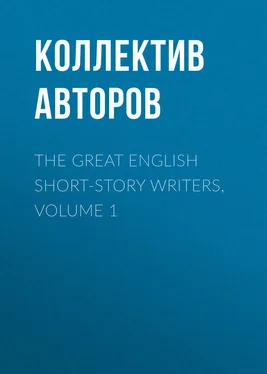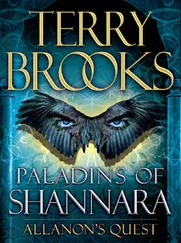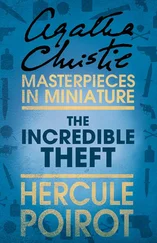Коллектив авторов - The Great English Short-Story Writers, Volume 1
Здесь есть возможность читать онлайн «Коллектив авторов - The Great English Short-Story Writers, Volume 1» — ознакомительный отрывок электронной книги совершенно бесплатно, а после прочтения отрывка купить полную версию. В некоторых случаях можно слушать аудио, скачать через торрент в формате fb2 и присутствует краткое содержание. Жанр: foreign_antique, foreign_prose, на английском языке. Описание произведения, (предисловие) а так же отзывы посетителей доступны на портале библиотеки ЛибКат.
- Название:The Great English Short-Story Writers, Volume 1
- Автор:
- Жанр:
- Год:неизвестен
- ISBN:нет данных
- Рейтинг книги:3 / 5. Голосов: 1
-
Избранное:Добавить в избранное
- Отзывы:
-
Ваша оценка:
- 60
- 1
- 2
- 3
- 4
- 5
The Great English Short-Story Writers, Volume 1: краткое содержание, описание и аннотация
Предлагаем к чтению аннотацию, описание, краткое содержание или предисловие (зависит от того, что написал сам автор книги «The Great English Short-Story Writers, Volume 1»). Если вы не нашли необходимую информацию о книге — напишите в комментариях, мы постараемся отыскать её.
The Great English Short-Story Writers, Volume 1 — читать онлайн ознакомительный отрывок
Ниже представлен текст книги, разбитый по страницам. Система сохранения места последней прочитанной страницы, позволяет с удобством читать онлайн бесплатно книгу «The Great English Short-Story Writers, Volume 1», без необходимости каждый раз заново искать на чём Вы остановились. Поставьте закладку, и сможете в любой момент перейти на страницу, на которой закончили чтение.
Интервал:
Закладка:
The Great English Short-Story Writers Volume 1
THE EVOLUTION OF THE SHORT-STORY
I
The short-story commenced its career as a verbal utterance, or, as Robert Louis Stevenson puts it, with "the first men who told their stories round the savage camp-fire."
It bears the mark of its origin, for even to-day it is true that the more it creates the illusion of the speaking-voice, causing the reader to listen and to see, so that he forgets the printed page, the better does it accomplish its literary purpose. It is probably an instinctive appreciation of this fact which has led so many latter-day writers to narrate their short-stories in dialect. In a story which is communicated by the living voice our attention is held primarily not by the excellent deposition of adjectives and poise of style, but by the striding progress of the plot; it is the plot, and action in the plot, alone which we remember when the combination of words which conveyed and made the story real to us has been lost to mind. "Crusoe recoiling from the foot-print, Achilles shouting over against the Trojans, Ulysses bending the great bow, Christian running with his fingers in his ears; these are each culminating moments, and each has been printed on the mind's eye for ever." 1 1 A Gossip on Romance, from Memories and Portraits , by R.L. Stevenson.
The secondary importance of the detailed language in which an incident is narrated, when compared with the total impression made by the naked action contained in the incident, is seen in the case of ballad poetry, where a man may retain a vivid mental picture of the localities, atmosphere, and dramatic moments created by Coleridge's Ancient Mariner , or Rossetti's White Ship , and yet be quite incapable of repeating two consecutive lines of the verse. In literature of narration, whether prose or verse, the dramatic worth of the action related must be the first consideration.
In earlier days, when much of the current fiction was not written down, but travelled from mouth to mouth, as it does in the Orient to-day, this fact must have been realized – that, in the short-story, plot is superior to style. Among modern writers, however, there has been a growing tendency to make up for scantiness of plot by high literary workmanship; the result has been in reality not a short-story, but a descriptive sketch or vignette, dealing chiefly with moods and landscapes. So much has this been the case that the writer of a recent Practical Treatise on the Art of the Short-Story has found it necessary to make the bald statement that "the first requisite of a short-story is that the writer have a story to tell." 2 2 Short-Story Writing , by Charles Raymond Barrett.
However lacking the stories which have come down to us from ancient times may be in technique, they invariably narrate action – they have something to tell. If they had not done so, they would not have been interesting to the men who first heard them, and, had they not been interesting, they would not have survived. Their paramount worth in this respect of action is proved by the constant borrowings which modern writers have made from them. Take one case in illustration. In the twenty-eighth chapter of Aristotle's Secretum Secretorum appears a story in which "a queen of India is said to have treacherously sent to Alexander, among other costly presents, the pretended testimonies of friendship, a girl of exquisite beauty, who, having been fed with serpents from her infancy, partook of their nature." It comes to light again, in an altered and expanded form, in the Gesta Romanorum , as the eleventh tale, being entitled Of the Poison of Sin .
"Alexander was a prince of great power, and a disciple of Aristotle, who instructed him in every branch of learning. The Queen of the North, having heard of his proficiency, nourished her daughter from the cradle upon a certain kind of deadly poison; and when she grew up, she was considered so beautiful, that the sight of her alone affected many to madness. The queen sent her to Alexander to espouse. He had no sooner beheld her than he became violently enamoured, and with much eagerness desired to possess her; but Aristotle, observing his weakness, said: 'Do not touch her, for if you do, you will certainly perish. She has been nurtured upon the most deleterious food, which I will prove to you immediately. Here is a malefactor who is already condemned to death. He shall be united to her, and you shall soon see the truth of what I advance.'
"Accordingly the culprit was brought without delay to the girl; and scarcely had he touched her lips, before his whole frame was impregnated with poison, and he expired. Alexander, glad at his escape from such imminent destruction, bestowed all thanks on his instructor, and returned the girl to her mother."
After which follows the monkish application of the moral, as long as the entire story: Alexander being made to stand for a good Christian; the Queen of the North for "a superfluity of the things of life, which sometimes destroys the spirit, and generally the body"; the Poison Maid for luxury and gluttony, "which feed men with delicacies that are poison to the soul"; Aristotle for conscience and reason, which reprove and oppose any union which would undo the soul; and the malefactor for the evil man, disobedient unto his God.
There have been at least three writers of English fiction who, borrowing this germ-plot from the Gesta Romanorum , have handled it with distinction and originality. Nathaniel Hawthorne, having changed its period and given it an Italian setting, wove about it one of the finest and most imaginative of his short-stories, Rappaccini's Daughter . Oliver Wendell Holmes, with a freshness and vigor all his own, developed out of it his fictional biography of Elsie Venner . And so recent a writer as Mr. Richard Garnett, attracted by the subtle and magic possibilities of the conception, has given us yet another rendering, restoring to the story its classic setting, in The Poison Maid . 3 3 Vide The Twilight of the Gods and Other Tales , published by John Lane, 1903.
Thus, within the space of a hundred years, three master-craftsmen have found their inspiration in the slender anecdote which Aristotle, in the opulence of his genius, was content to hurry into a few sentences and bury beneath the mass of his material.
II
Probably the first stories of mankind were true stories , but the true story is rarely good art. It is perhaps for this reason that few true stories of early times have come down to us. Mr. Cable, in his Strange True Stories of Louisiana , explains the difference between the fabricated tale and the incident as it occurs in life. "The relations and experiences of real men and women," he writes, "rarely fall in such symmetrical order as to make an artistic whole. Until they have had such treatment as we give stone in the quarry or gems in the rough, they seldom group themselves with that harmony of values and brilliant unity of interest that result when art comes in – not so much to transcend nature as to make nature transcend herself." In other words, it is not until the true story has been converted into fiction by the suppression of whatever is discursive or ungainly, and the addition of a stroke of fantasy, that it becomes integral, balanced in all its parts, and worthy of literary remembrance.
In the fragments of fiction which have come down to us from the days when books were not, odd chapters from the Fieldings and Smollets of the age of Noah, remnants of the verbal libraries which men repeated one to the other, squatting round "the savage camp-fire," when the hunt was over and night had gathered, the stroke of fantasy predominates and tends to comprise the whole. Men spun their fictions from the materials with which their minds were stored, much as we do to-day, and the result was a cycle of beast-fables – an Odyssey of the brute creation. Of these the tales of Aesop are the best examples. The beast-fable has never quite gone out of fashion, and never will so long as men retain their world-wonder, and childishness of mind. A large part of Gulliver's adventures belong to this class of literature. It was only the other day that Mr. Kipling gave us his Just-so Stories , and his Jungle-Book , each of which found an immediate and secure place in the popular memory.
Читать дальшеИнтервал:
Закладка:
Похожие книги на «The Great English Short-Story Writers, Volume 1»
Представляем Вашему вниманию похожие книги на «The Great English Short-Story Writers, Volume 1» списком для выбора. Мы отобрали схожую по названию и смыслу литературу в надежде предоставить читателям больше вариантов отыскать новые, интересные, ещё непрочитанные произведения.
Обсуждение, отзывы о книге «The Great English Short-Story Writers, Volume 1» и просто собственные мнения читателей. Оставьте ваши комментарии, напишите, что Вы думаете о произведении, его смысле или главных героях. Укажите что конкретно понравилось, а что нет, и почему Вы так считаете.












